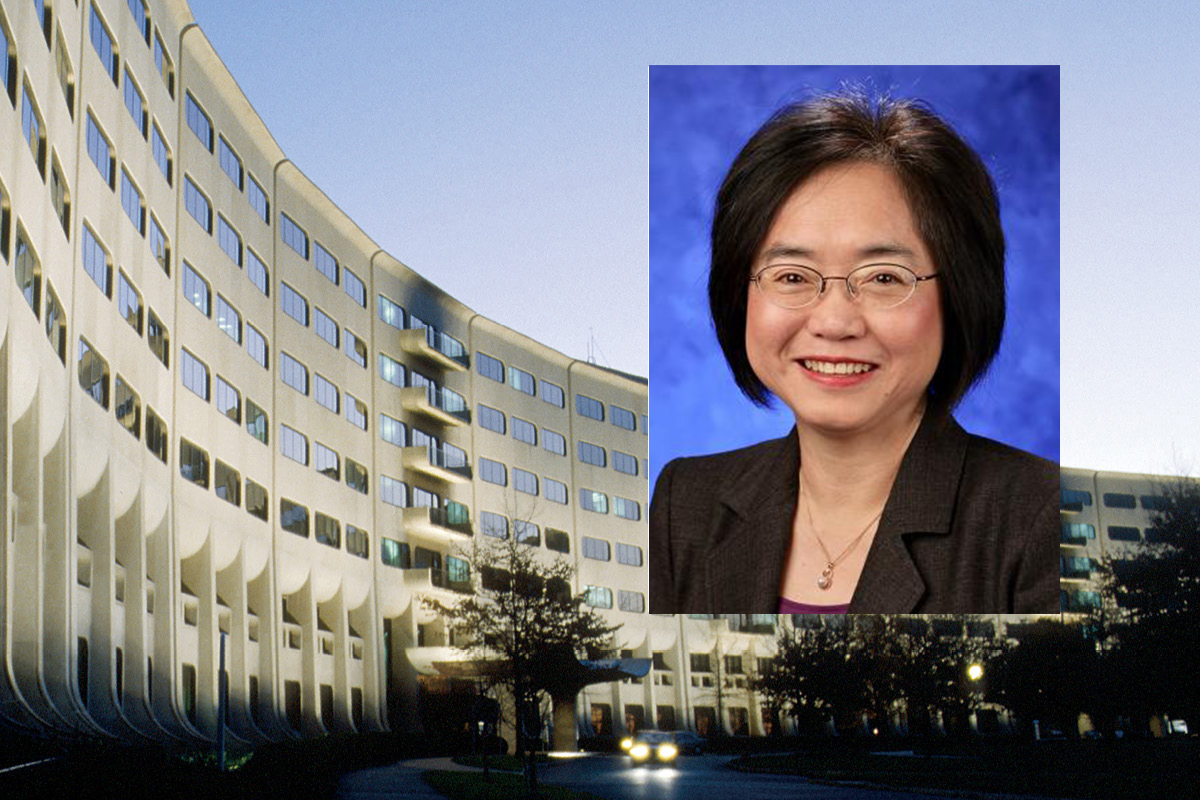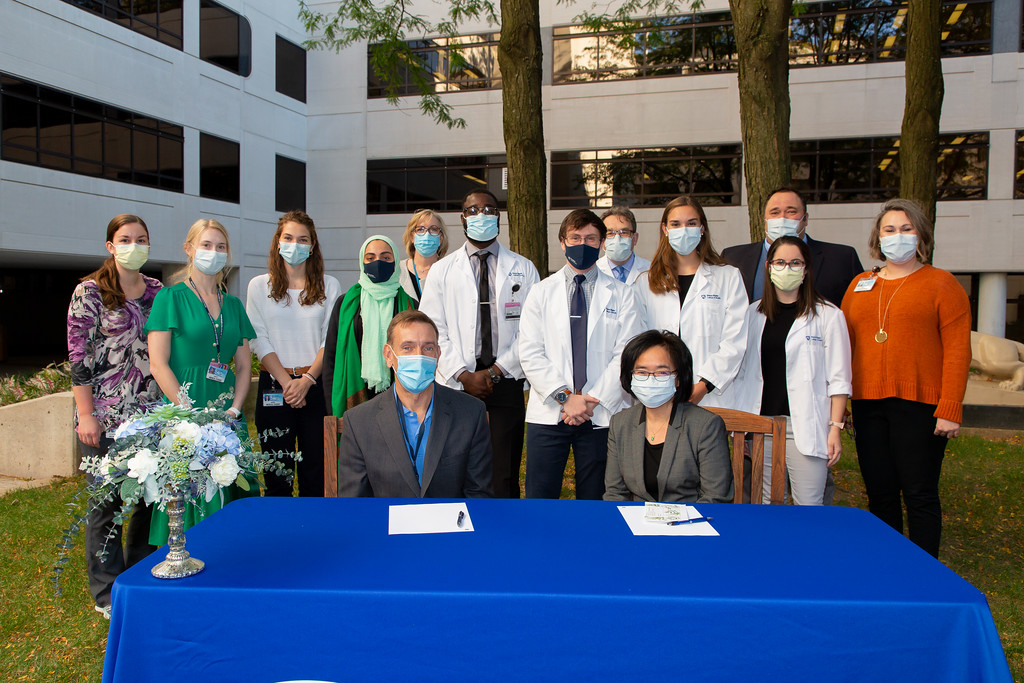Leong receives prestigious national award from American Academy of Family Physicians

The American Academy of Family Physicians (AAFP) has selected Dr. Shou Ling Leong, professor of family and community medicine at Penn State College of Medicine, as the recipient of its 2022 Thomas W. Johnson Award for Career Contributions to Family Medicine Education.
Leong, who also serves as assistant dean for pathways innovation, director of accelerated pathways and associate vice chair for education, was chosen for this recognition – one of the highest honors awarded by the AAFP – out of the organization’s nearly 130,000 members across the country.
“I am honored to be selected for this prestigious award and humbled to be counted amongst the family physician leaders who were past recipients,” Leong said. “This award gives me joy, a sense of fulfillment and gratitude.”
This national award was established in 1973 to recognize outstanding contributions to family medicine education in undergraduate, graduate and continuing education spheres. It highlights individuals whose commitment contributes to a shared legacy of excellence in the family medicine field.
And according to Dr. Mack Ruffin, professor of family and community medicine and public health sciences, Leong certainly fits that bill.
“Dr. Leong is a tireless and visionary leader at the local and national levels regarding medical education, particularly in the areas of the patient-centered medical home, computer cases for clerkship training, accelerated pathways and longitudinal integrated clerkships,” said Ruffin, chair of the Department of Family and Community Medicine.
The accomplishments cited by the AAFP include the program Leong developed, called an “accelerated pathway,” at Penn State College of Medicine that allows students to complete medical school in three years instead of four, accelerating the training of physicians in central Pennsylvania and nationwide. Along with consistent mentoring and coaching, each pathway in the three-year program is customized to help reduce stress and burnout in students.

Students in the Penn State College of Medicine MD Accelerated Pathways program will graduate medical school in three years instead of four. On Sept. 29 they attended a signing ceremony.
The accelerated program started first in family and community medicine and has since expanded across multiple areas of study, from internal medicine to orthopedics.
“This program’s success required a compelling vision and clear goals aligned with a good business plan,” Leong said. “I am fortunate to have had the support of the leadership at Penn State College of Medicine in the development of our accelerated program.”
Leong noted that the program would not have been possible without the backing of former dean Dr. Craig Hillemeier, current interim dean Dr. Kevin Black and Dr. Terry Wolpaw, former vice dean for education. Dr. James Herman and Ruffin, former and current Department of Family and Community Medicine chairs, respectively, shared the vision, Leong said, and embraced innovation.
“A wonderful group of enthusiastic and dedicated educators at Penn State contributed to the program, including Drs. David Richard, Dennis Gingrich, Todd Felix, Daniel Schlegel and Karl Clebak,” Leong added.
Leong has also developed and served as editor-in-chief of Aquifer Family Medicine, formerly known as fmCASES, a set of virtual patient cases professors use to teach the national clerkship curriculum. Most medical schools in Pennsylvania and across the country are now subscribers to these cases, which model how to think through patient encounters, ask the right questions and provide evidence-based, patient-centered care.
Over the course of her career, Leong has successfully developed and implemented other innovative curricula with grant support from both national and state organizations – all in an effort to align medical training with the health care needs of the country and foster student interest in primary care.
“I am amazed at what is possible when passionate educators work toward the common goal of improving education for the next generation of physicians,” Leong said. “I am proud of the impact we were able to achieve through teamwork. I am grateful for the broad support that our initiatives received, from leadership to educators, grant funders and private donors.
“I also want to thank my family and my husband, Dr. Keith Cheng, for their continuous support and encouragement.”
Leong will accept the Thomas W. Johnson Award and present brief remarks at the AAFP’s 2022 Congress of Delegates on Sept. 20 in Washington, D.C.
If you're having trouble accessing this content, or would like it in another format, please email the Penn State College of Medicine web department.
